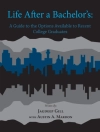For the first time in four decades, prison populations are declining and politicians have reached the consensus that mass imprisonment is no longer sustainable. At this unique moment in the history of corrections, the opportunity has emerged to discuss in meaningful ways how best to shape efforts to control crime and to intervene effectively with offenders. This breakthrough book brings together established correctional scholars to imagine what this prison future might entail. Each scholar uses his or her expertise to craft—in an accessible way for students to read—a blueprint for how to create a new penology along a particular theme. For example, one contributor writes about how to use existing research expertise to create a prison that is therapeutic and another provides insight on how to create a ‘feminist’ prison. In the final chapter the editors pull together the ‘lessons learned’ in a cohesive, comprehensive essay.
表中的内容
Chapter 1. The Therapeutic Prison – Paula Smith and Myrinda Schweitzer
Chapter 2. The Restorative Prison – Lois Presser
Chapter 3. The Faith-Based Prison – Byron R. Johnson
Chapter 4. The Virtuous Prison – Francis T. Cullen, Jody L. Sundt and John F. Wozniak
Chapter 5. The Feminist Prison – Kristi Holsinger
Chapter 6. The Racially Just Prison – Craig Hemmens and Mary K. Stohr
Chapter 7. The Safe Prison – Benjamin Steiner and Benjamin Meade
Chapter 8. The Healthy Prison – Roberto Hugh Potter and Jeffrey W. Rosky
Chapter 9. The Private Prison – Kevin A. Wright
Chapter 10. The Green Prison – Mary K. Stohr and John F. Wozniak
Chapter 11. The Small Prison – Cheryl Lero Jonson, John E. Eck and Francis T. Cullen
Chapter 12. The Accountable Prison – Francis T. Cullen, Cheryl Lero Jonson and John E. Eck
Chapter 13. Lessons Learned – Mary K. Stohr, Cheryl Lero Jonson and Francis T. Cullen
关于作者
Mary K. Stohr is a professor in the Department of Criminal Justice at Washington State University. She earned her Ph D in political science, with specializations in criminal justice and public administration, from Washington State University. Previously she worked at Missouri State, Boise State, and New Mexico State Universities for a total of 23 years. Before entering academe Stohr, worked in an adult male prison in Washington state as a correctional officer (for less than a year) and as a correctional counselor (for about two years). Stohr has published seven books and a total of over 150 other academic works of one sort or another in the areas of correctional organizations and operation, correctional personnel, client needs and assessment, program evaluation, drug policy and victimization. She is both a Founders and Fellows Award winner from the Academy of Criminal Justice Sciences.












